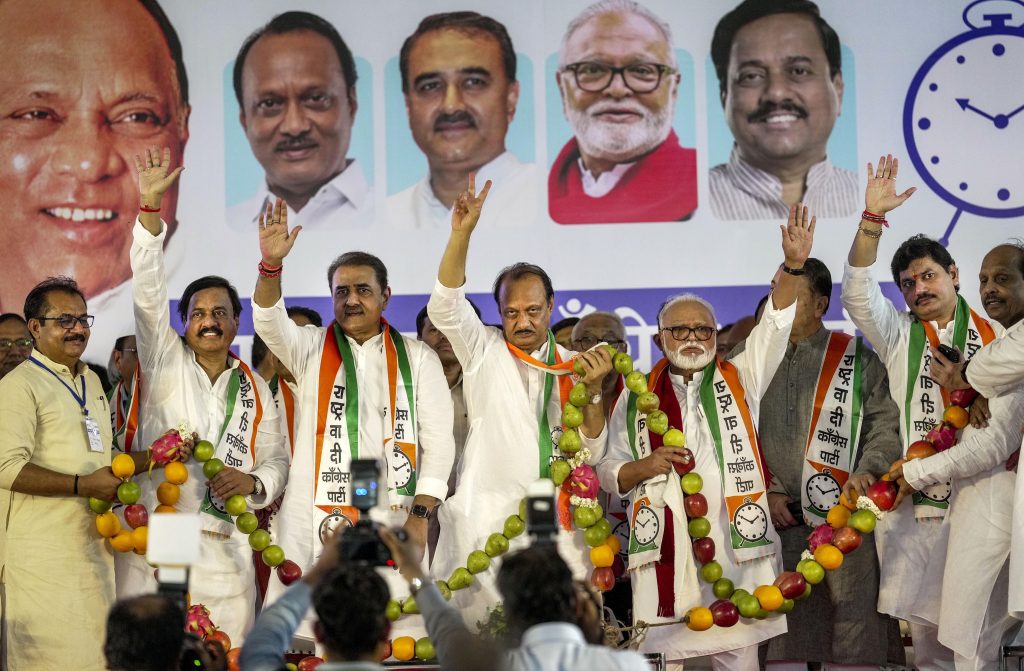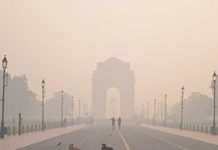
The on-going political unrest that began in the middle of 2022, when Shiv Sena leader Eknath Shinde revolted against CM Thackeray, undermines the state’s political stability and pace of economic expansion, which is bad news for the entire country
In the past year, there have been a number of political upheavals in Maharashtra, the second-most populous state in India, which have resulted in a realignment of political forces and a change of government. Forty eight seats in the Lok Sabha and a 288-member legislature make up Maharashtra. The National Democratic Alliance (NDA) won 161 seats in the 2019 assembly elections, with the BJP taking the top spot with 105 seats. Shiv Sena (SS), the Nationalist Congress Party (NCP), and the Indian National Congress (INC) each received 56 seats. Other parties and independents won the remaining 29 seats.
However, the Shiv Sena’s demand for a rotating chief ministerial position, which the BJP rejected, prevented the NDA from forming the government. Uddhav Thackeray, the leader of Shiv Sena was appointed chief minister in November 2019 after the group split from the NDA and partnered with the NCP and INC to form the MVA government.
Trigger to crisis
When Eknath Shinde, a senior SS leader and cabinet minister, revolted against Thackeray in June 2022 and accused him of nepotism, corruption, and mishandling the COVID-19 pandemic, the MVA government was in full swing. He asserted that 35 SS MLAs and a number of independents supported him.
Shinde also made contact with the BJP and offered to work together to form a new government. Devendra Fadnavis, the head of the BJP, consented to support Shinde on the understanding that he would serve as the deputy chief minister. In order to stake out his claim to form the government, Shinde accepted the offer and met with the then-Governor of Maharashtra.
Thackeray was given 48 hours by the governor to demonstrate his majority in the assembly. Thackeray was unable to accomplish this because he lost the backing of the NCP and INC, who opted to remain impartial. With the help of the BJP and other parties, Shinde then demonstrated his majority, and on June 30, 2022, he was sworn in as the chief minister.
A political crisis in Maharashtra was brought on by Shinde’s decision to leave his party and form his own faction with the support of the BJP. The Shinde group and the Thackeray group were now the two opposing factions within the Shiv Sena. The Thackeray group then petitioned the SC in July 2022 in relation to the state’s political crisis.
The Supreme Court ruled against the Shinde government in Maharashtra on May 11, 2023, concluding that the MVA government’s demise was caused by the then Governor, Bhagat Singh Koshyari’s “error” in calling for a trust vote. Additionally, the court formally started the disqualification process against Shinde for leaving the Shiv Sena party.
Ajit Pawar’s rebellion
Ajit Pawar, a prominent NCP figure and the nephew of party leader Sharad Pawar, joined Shinde’s administration on July 3, 2023, and was sworn in as the deputy chief minister. In addition, he named Praful Patel as the NCP’s national working president while claiming the support of nine NCP MLAs. Sharad Pawar allegedly ignored Ajit Pawar in party matters, according to Ajit Pawar, who expressed dissatisfaction with Sharad Pawar’s leadership. Additionally, he charged that Sharad Pawar had compromised NCP interests and was soft on Thackeray. He declared his desire to collaborate with Shinde and the BJP for Maharashtra’s development.
Ajit Pawar’s rebellion was denounced by Sharad Pawar, who claimed that he had betrayed the party and its principles. Along with admitting his mistake in believing some people, he also promised to rebuild NCP with the help of devoted employees. In order to strengthen his base, he also began his state-wide tour from Yeola in the Nashik district.
In Maharashtra, as things stand right now, the Shinde-led government has a majority of 174 MLAs, while the MVA has lost some support, falling to 110 MLAs. The other four MLAs are independents who have not endorsed a particular cause.
Several national leaders and parties have responded to the political crisis in Maharashtra. Shinde and Ajit Pawar have been accepted into the BJP, but INC has denounced them for abandoning their platform and allying with the party. SS (Thackeray) referred to Shinde as a traitor and charged the BJP with orchestrating defections. The NCP has stated that it is confident that the majority of its MLAs will re-join the party, and that it will oppose Ajit Pawar’s claim to the party’s name and symbol before the Election Commission.
Political fallout
Following the political developments in Maharashtra, uncertainty has been cast over the stability of the government, the future of MVA, Sharad Pawar’s role, the impact on national politics, and the aspirations of the Maharashtrian people.
Given that Maharashtra is one of the biggest and most influential states in the nation, recent developments there could have a significant impact on the 2024 Lok Sabha elections. The BJP anticipates that its coalition with the Ajit Pawar-led NCP and the Shinde-led SS will help it win more seats in the Lok Sabha, strengthen its support among the Maratha-Kunbi community, which is the state’s dominant caste, and draw voters from other castes and regions. The BJP might need to make up for potential losses in other states, so seat distribution in Maharashtra could have a significant impact on the overall result of the 2024 Lok Sabha elections.
The MVA, which was viewed as a potential role model for opposition unity at the national level before the split in the NCP and SS, has been weakened. It might be challenging for the MVA to rekindle its alliance and win back the support of the public. Some observers believe that Thackeray and Sharad Pawar may both win over the public and inspire greater political acceptance than in the past.
Due to their alleged partisan actions in favour of the BJP, the Governor and central agencies like the ED have come under fire following the Maharashtra incident.
The political developments in Maharashtra have also made clear how unethical the parties and leaders involved in politics are. The pre-election alliances, electoral mandates, ideological ties, and public welfare have all been disregarded by the parties and leaders. Without consulting the voters, they have changed sides for personal reasons. Indulging in opportunism and horse-trading, they have attracted MLAs with promises of wealth and influence. Additionally, they have denigrated their rivals by using hate speech and insults. The public’s faith and confidence in the political system and its representatives have been damaged by these developments.













